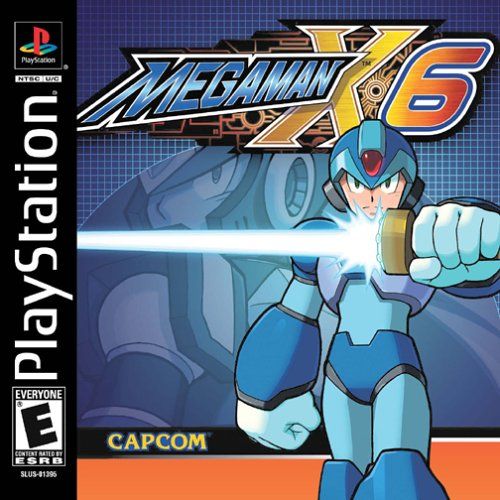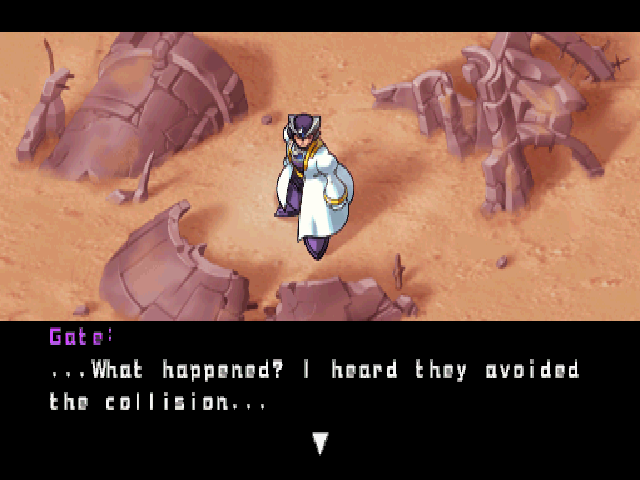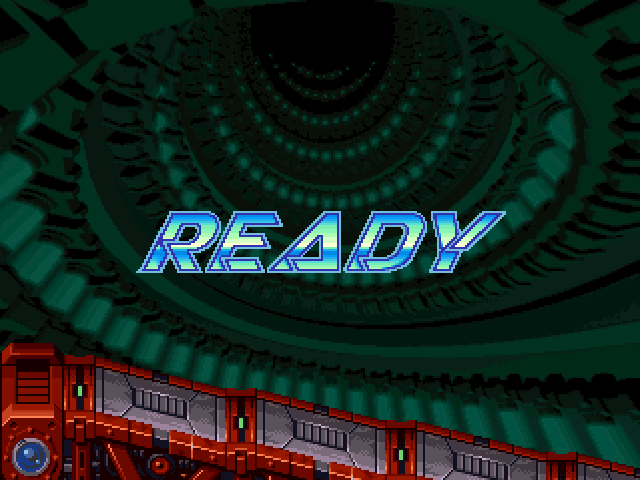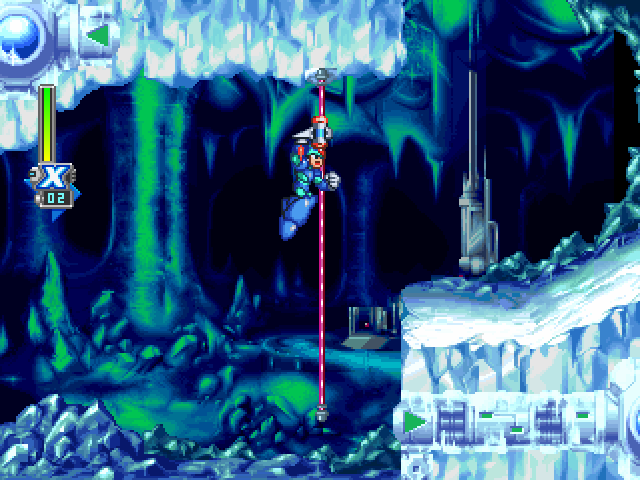Retro Replay Review
Gameplay
Mega Man X6 picks up the series’ trademark run-and-gun action and injects a fresh layer of tension with the Nightmare virus mechanic. As X, you’ll dash, wall-jump, and charge your buster through a gauntlet of hazardous environments, all while managing limited sub-weapons and power-ups. The mission select screen allows you to tackle eight Nightmare-affected stages in almost any order, but each level carries its own unique threat. Planning your path becomes a mini-puzzle: some stages lock off entirely if you don’t clear them before the Nightmare spreads, adding urgency to your decisions.
(HEY YOU!! We hope you enjoy! We try not to run ads. So basically, this is a very expensive hobby running this site. Please consider joining us for updates, forums, and more. Network w/ us to make some cash or friends while retro gaming, and you can win some free retro games for posting. Okay, carry on 👍)
Beyond the main stages, the game’s upgrade and badge systems reward exploration and high performance. Collecting energy crystals and Nightmare souls lets you acquire powerful abilities—from enhanced mobility to more devastating buster shots. Badges provide passive bonuses, like increased defense or improved weapon charge times, but each slot has a weight limit. Choosing the right combination of upgrades against the Nightmare’s ever-present danger keeps every run exciting and strategic.
Boss battles remain the highlight: familiar Maverick Hunters gone rogue present brutal challenges that test your mastery of X’s arsenal. Each boss fight demands pattern recognition and precise timing, and many encounters feature multiple phases or shifting attack patterns fueled by the Nightmare virus. While die-and-retry may frustrate newcomers, series veterans will find satisfaction in learning the intricacies and conquering each stage’s toughest threats.
Graphics
Graphically, Mega Man X6 maintains the crisp 2D sprite work that defined its SNES predecessors but transitions beautifully to the PlayStation hardware. Levels are richly detailed, from the charred ruins of Earth’s surface to the eerie glow of underground tunnels. Parallax scrolling adds depth, and dynamic background elements—like collapsing structures or drifting dust—immerse you in the post-cataclysmic wasteland.
Character and boss designs receive special attention: the Nightmare virus manifests in twisted, jagged silhouettes and pulsating energy effects that contrast sharply with X’s sleek blue armor. Animation frames feel fluid even during high-intensity sequences, and charge shots light up the screen with satisfying visual flair. While the color palette leans toward darker, desaturated tones to match the grim setting, occasional bursts of neon highlight key threats and keep the visuals from feeling monotonous.
Cutscenes use animated panels with expressive character portraits, giving narrative beats an extra punch without breaking the gameplay’s momentum. Though the graphical style remains authentically 16-bit in spirit, the added polish, transparency effects, and occasional 3D overlays demonstrate Capcom’s effort to push the hardware and maintain the series’ visual identity on a new platform.
Story
It’s been three weeks since the space colony Eurasia crashed into Earth, rendering the surface a deadly, barren wasteland. Humanity has retreated underground, and Reploids—robotic beings once considered allies—are struggling to rebuild in the fallout of the Sigma Virus. This grim setting sets the stage for X’s latest mission: uncovering the nature of a more insidious threat known as the “Nightmare Virus.”
When a young Reploid scientist named Gate discovers a mysterious chip amidst the ruined landscape, he becomes obsessed with harnessing its power. He dispatches eight assistants to investigate, only for them to vanish without a trace. With whispers of these Reploids turning Maverick, suspicion and panic spread through the Maverick Hunters. Zero’s disappearance during the catastrophe leaves X with only Zero’s Beam Sabre as a reminder of his friend’s fate—and as a motivator to press on.
X embarks on a perilous journey across interconnected stages, chasing clues to Gate’s true intentions. In-between action sequences, dialogue and brief cutscenes flesh out a narrative of desperation, betrayal, and the ever-looming threat of a virus that could plunge the world into eternal darkness. While the storyline is straightforward, it effectively amplifies the stakes and grounds the relentless action in a world on the brink of collapse.
Overall Experience
Mega Man X6 delivers a high-octane platforming adventure that will feel both nostalgic and refreshingly challenging to longtime fans. The Nightmare virus system injects a sense of urgency and replayability, as each choice can permanently alter the game’s progression. While newcomers might stumble at the steep difficulty curve, perseverance and strategy yield a gratifying sense of accomplishment.
The combination of tight controls, compelling stage design, and memorable boss encounters cements this installment’s place in the X series. Atmospheric visuals and a suitably moody soundtrack round out the experience, immersing players in a post-Eurasia world fraught with danger and uncertainty. Although some may find the narrative delivery and difficulty spikes uneven, these aspects ultimately reinforce the game’s themes of survival and sacrifice.
For anyone seeking a robust challenge wrapped in classic Mega Man X flair, Mega Man X6 stands as a solid choice. It demands skill, patience, and a willingness to adapt—and rewards those who rise to the occasion with one of the series’ most intense and atmospheric outings.
 Retro Replay Retro Replay gaming reviews, news, emulation, geek stuff and more!
Retro Replay Retro Replay gaming reviews, news, emulation, geek stuff and more!









Reviews
There are no reviews yet.